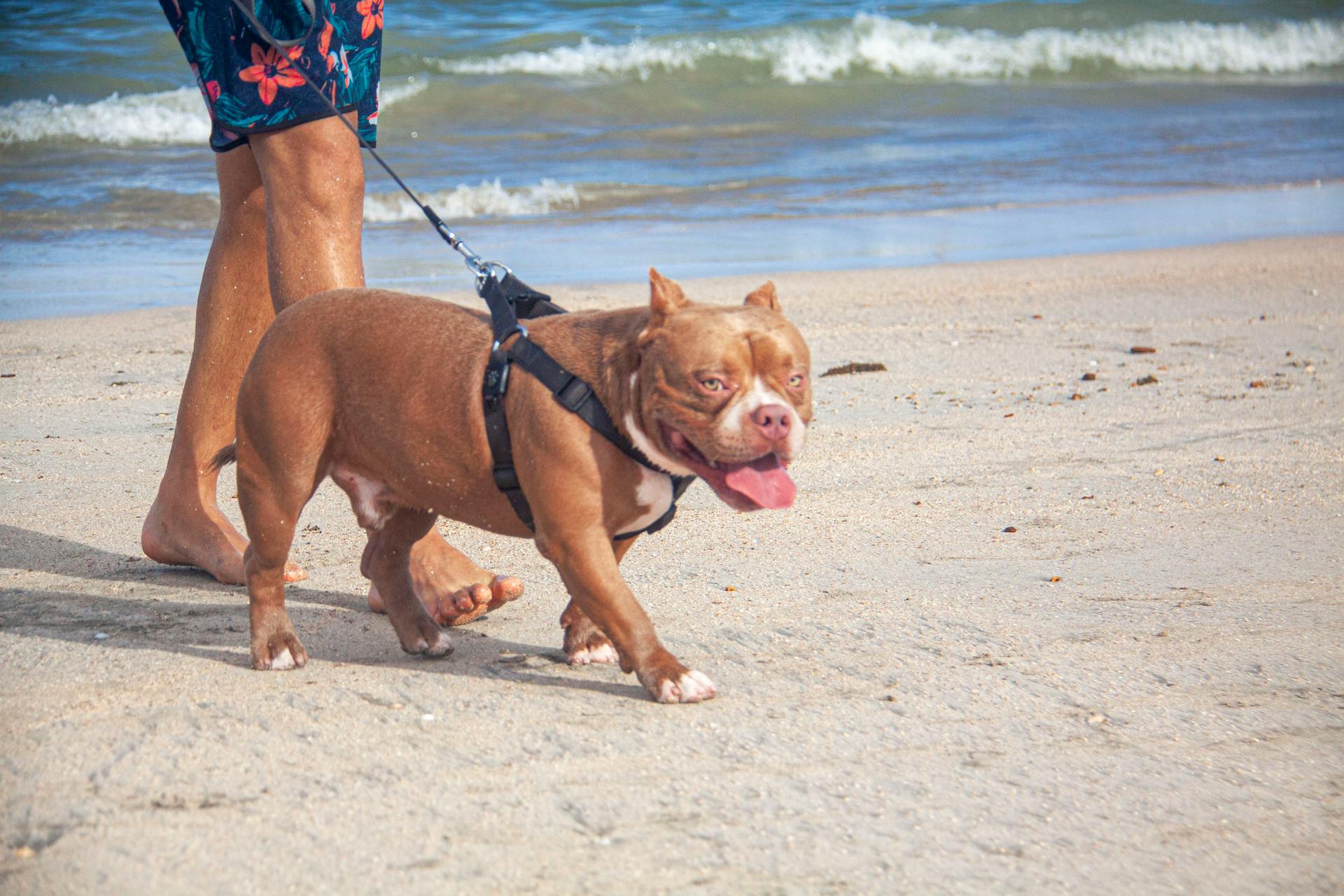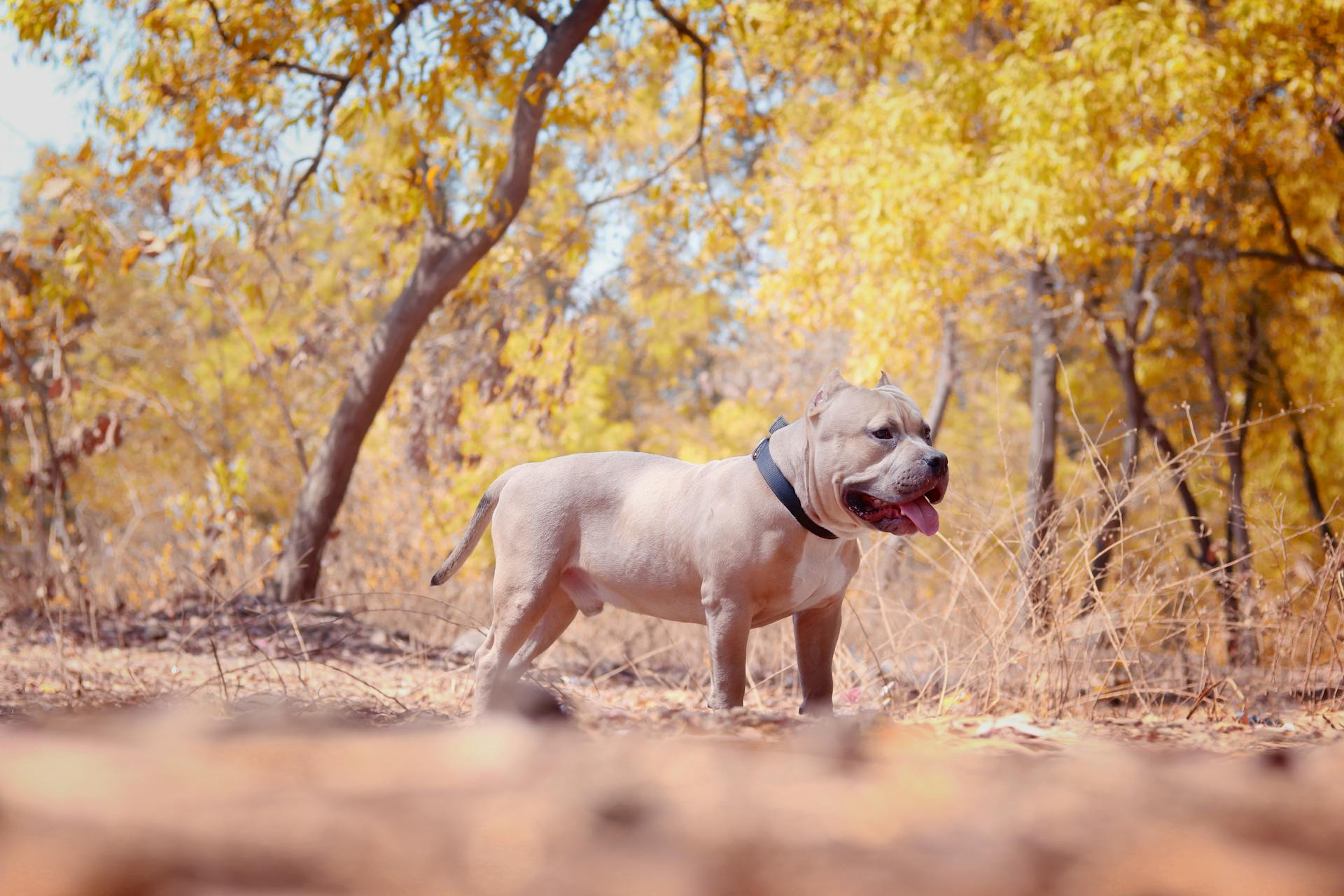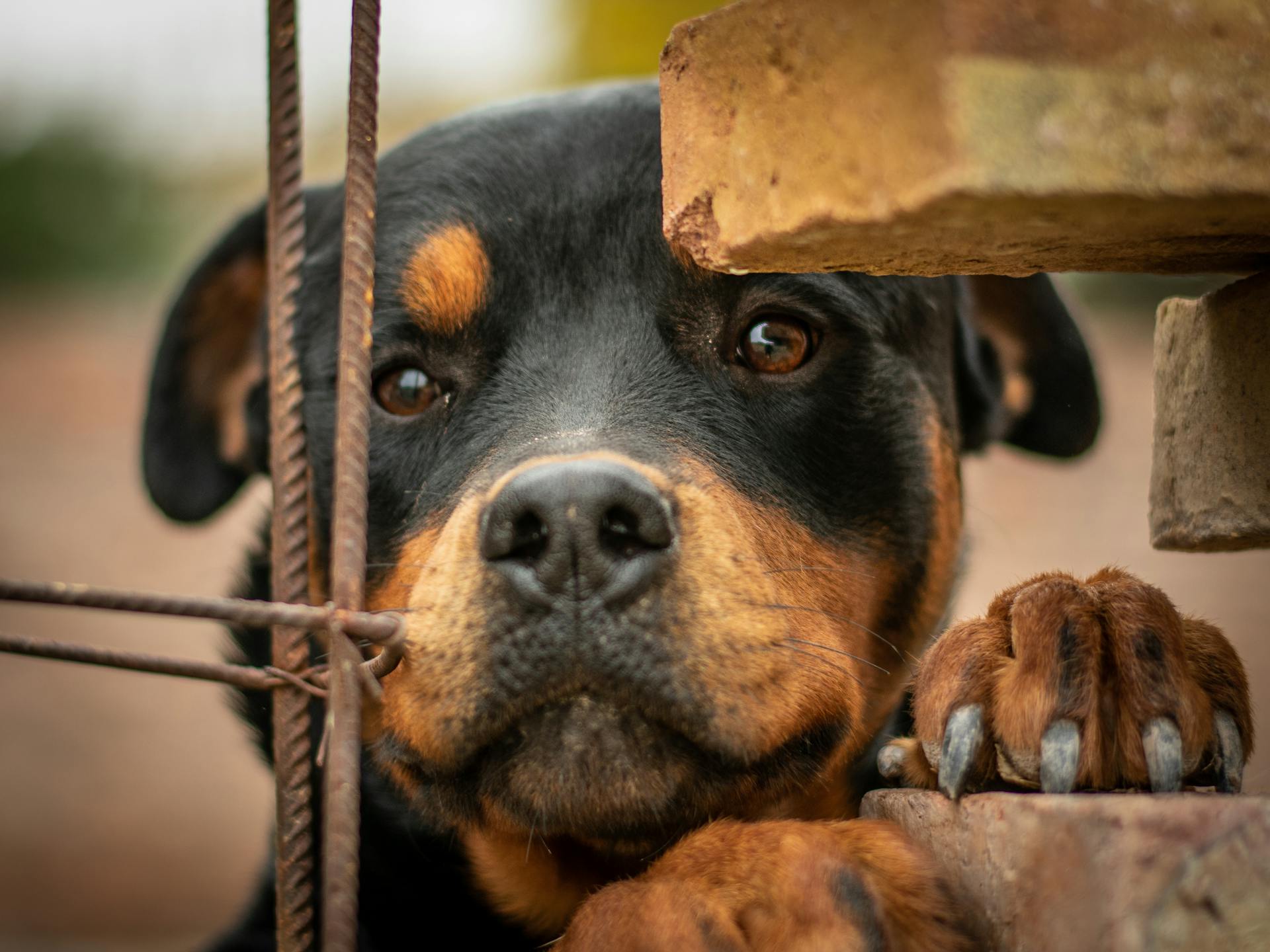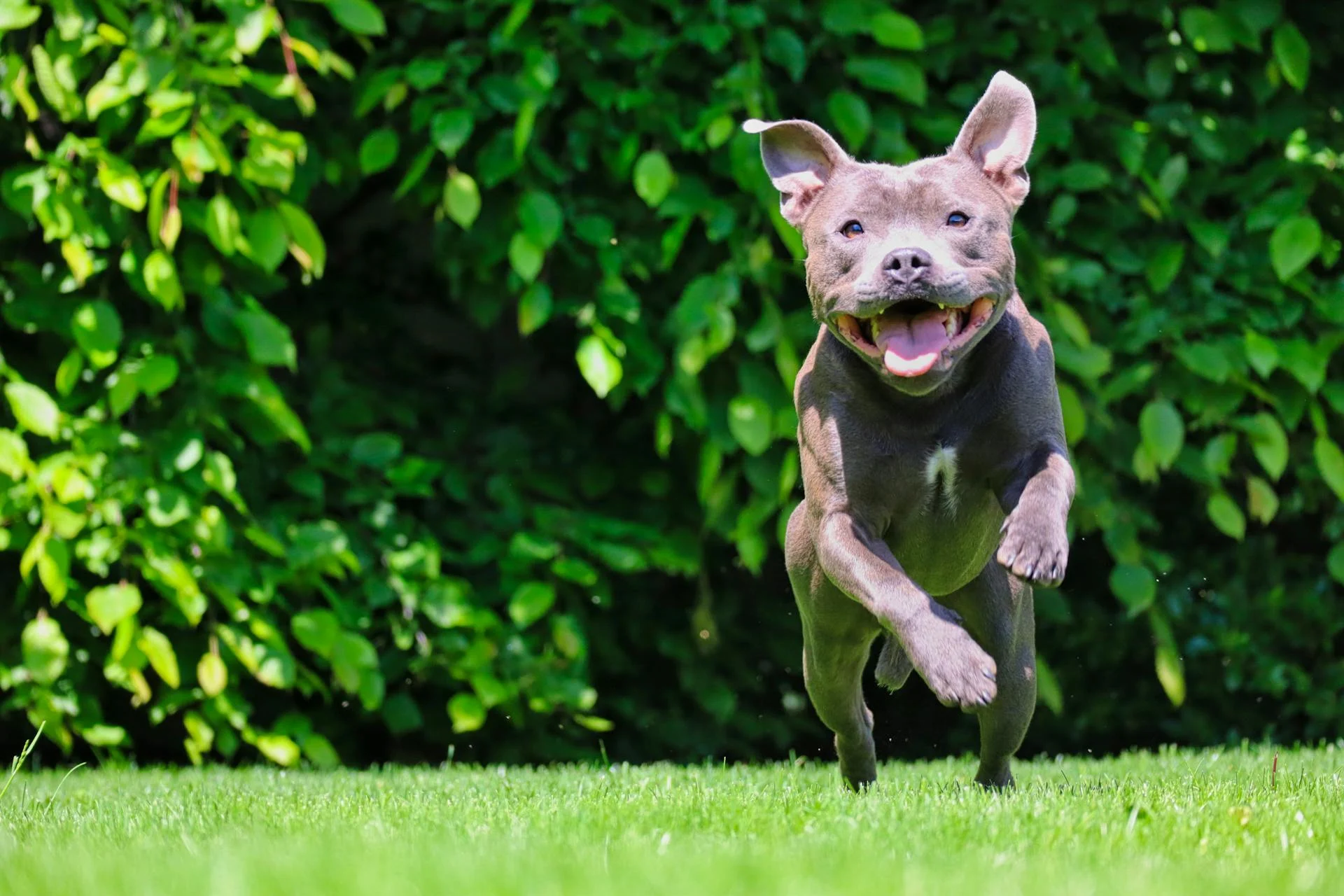
The American Hairless Terrier is a unique and fascinating breed. They originated in Mexico and were developed from the Xoloitzcuintli, an ancient Mexican dog.
This breed comes in both hairless and coated varieties, with the hairless variety being the more rare and sought-after. They can weigh between 10-20 pounds and stand between 10-23 inches tall.
The American Hairless Terrier is a social and affectionate breed that requires regular interaction with their owners. They thrive on attention and can become destructive if left alone for long periods.
Characteristics
The American Hairless Terrier is a breed that's full of energy and life. They have a high energy level, which means they need regular exercise to keep them happy and healthy.
If you're an active person who enjoys playing and running around, the American Hairless Terrier might be a great match for you. They require medium exercise needs, which can be met with daily walks and playtime.
One thing to keep in mind is that they can be a bit challenging to manage, especially for inexperienced dog owners. But with the right training and attention, they can thrive and become wonderful companions.
Appearance
The American Hairless Terrier is a breed that's unlike any other, and it's all thanks to its unique appearance. This breed's primary distinguishing factor is its lack of hair, which is considered normal due to a genetic mutation.
Their skin can vary in pigmentation, ranging from black, white, grey, blue, red, or brown, and can even be a combination of two or three colors. They can be born with one solid color or a mix of colors.
Standing at just 12–16 inches tall and weighing under 16 pounds, this breed has a small yet well-muscled stature. Their triangular ears typically stand upright, though sometimes the tips neatly fold over.
Their tail is tapered and rests in a slight curve, and it's always wagging when they see their favorite human. The hairless variety is born with a soft down or birth coat, which goes away over time, usually by eight to ten weeks of age.
In some cases, mature hairless terriers may have very fine hairs on their body, but they will never regrow their hair.
Temperament
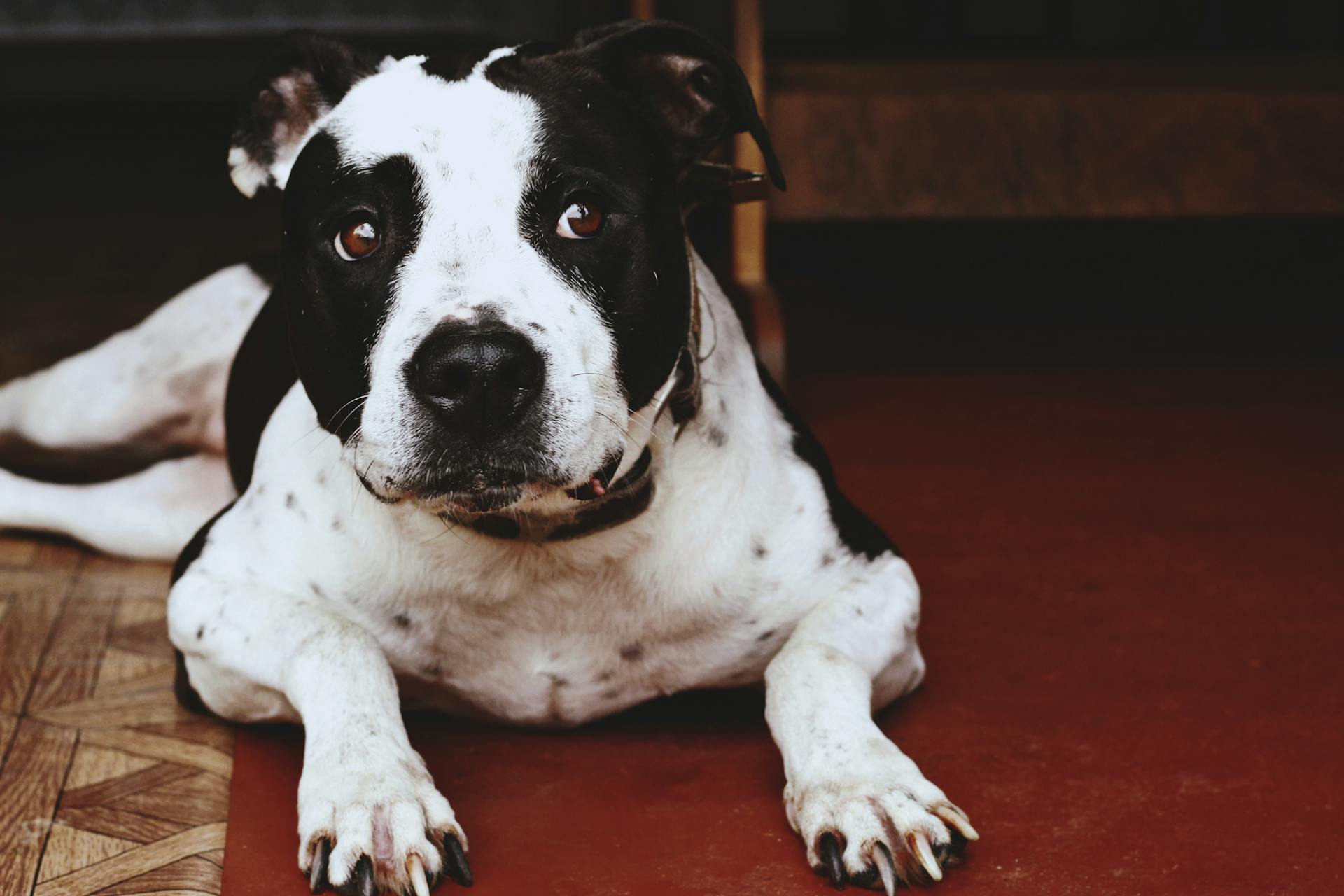
The American Hairless Terrier is a breed that's full of energy and life. They have a high prey drive, which means they love to chase small animals, so it's essential to socialize them with other pets from an early age.
These dogs are intelligent and eager to please, making them highly trainable. They thrive on companionship and affection from their human family, and they do well in agility and obedience competitions.
The American Hairless Terrier is not a lapdog, despite their small size. They require daily walks and playtime to expend their energy, and they'll get bored and restless if left alone for too long.
Here are some key temperament traits of the American Hairless Terrier:
The American Hairless Terrier is a bold and loyal breed that makes a great companion for active families. They're not suitable for hunting due to their lack of coat, but they still have a strong prey drive, so they need to be kept on a leash or in a fenced yard during playtime.
History
The American Hairless Terrier has a fascinating history that dates back to 1972 when a hairless rat terrier puppy named Josephine was born in Louisiana. Josephine was the first recorded hairless rat terrier and became the foundation female for the breed.
The American Hairless Terrier was created by Edwin Scott, who bred Josephine and her descendants to produce more hairless types of terriers. At first, the dogs were simply referred to as rat terriers of the hairless variety.
It took about eight years for a set of hairless siblings to be born after the first attempts at breeding more hairless dogs. This was a significant milestone in the development of the breed.
The American Hairless Terrier was officially recognized by the American Kennel Club (AKC) in 2016, after being part of the Miscellaneous Class since 2014. This recognition marked a major achievement for the breed.
The breed has its roots in the rat terrier, which was originally developed in England in the early 1800s. The rat terrier was tasked with tracking down and exterminating disease-carrying vermin, which is where the dog gets its name from.
The American Hairless Terrier is the only hairless breed indigenous to the United States, and it has no Powderpuff variety like some other hairless breeds.
A unique perspective: Shih Tzu Puppy First Haircut
Grooming
The American Hairless Terrier's grooming needs are relatively low-maintenance, but their skin requires extra care.
You'll need to bathe your AHT about once a week with a mild dog shampoo and pat their skin dry. In hot weather, apply a moisturizing sunscreen (try a sunscreen formulated for infants and toddlers) and cover their body against the sun.
Regular nail trims and ear cleanings are also essential. And, of course, you'll want to protect their skin from the elements.
Here are some specific grooming needs to keep in mind:
- Bathe about once a week with a mild dog shampoo
- Apply moisturizing sunscreen in hot weather
- Trim nails regularly
- Clean ears weekly
- Use a mild shampoo and lotion without lanolin to prevent dry skin
In cold weather, your AHT will need a well-fitting coat outdoors and may even need a fleecy sweater indoors if your home is drafty. And, as a reminder, sunscreen is a must in hot weather, even if it's just a short walk.
Health
The American Hairless Terrier is a relatively new breed, and as such, research is still ongoing about the inheritable conditions that could affect this dog. Current research shows that there are a few inheritable conditions that may affect the American Hairless Terrier.
Demodectic Mange is a condition where the naturally occurring Demodex Mite proliferates in larger than normal numbers, causing hair loss, skin irritation, and infections. It can be treated, but it may be something that has to be managed throughout the dog's life.
Some common health issues that American Hairless Terriers may face include Patellar Luxation, where the knee joint slips out of place, and Skin Conditions, such as atopic dermatitis and demodectic mange, which can be prevented with regular cleaning and a healthy diet.
Here are some of the health issues that American Hairless Terriers may be prone to:
Health Issues
The American Hairless Terrier is a relatively new breed, and as such, research is still ongoing about the inheritable conditions that can affect them. Demodectic Mange is one condition that can cause hair loss, skin irritation, and infections.
This condition can be treated, but it may require ongoing management throughout the dog's life. Legg-Calve Perthes is another congenital condition that may affect AHTs, causing an inadequate blood supply to the hip and resulting in a deformed femur.
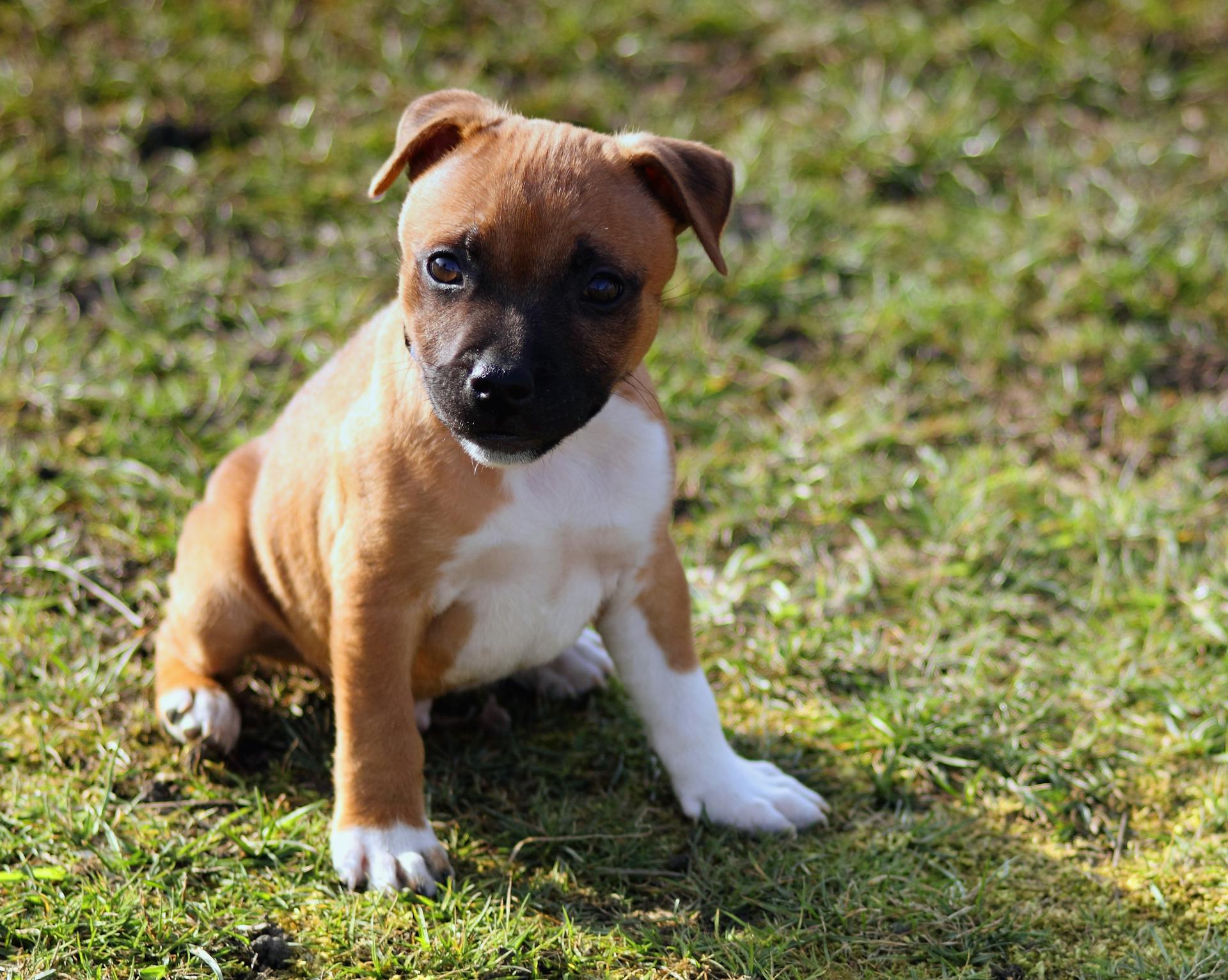
Corrective surgery is generally required to correct this problem. Luxating Patella is a common condition in small dog breeds, where the knee joint slips out of its groove. This can be painful for the dog and may require corrective surgery.
The American Hairless Terrier has a long life of 14-16 years, but they can be prone to certain health issues. Patellar Luxation is a common condition in small dog breeds, where the knee joint slips out of place.
Regular veterinary check-ups can help catch this condition early on. Skin conditions such as atopic dermatitis and demodectic mange can also affect AHTs, especially since their skin is completely exposed.
Keeping your hairless terrier clean can help prevent skin conditions from arising. Diabetes and obesity are also potential health issues for AHTs, which can be prevented with a high-quality diet and regular exercise.
Cushing's disease is another condition that can affect AHTs, caused by a tumor in the pituitary gland that produces adrenocorticotropic hormone (ACTH). Signs of Cushing's disease can include heat intolerance, lethargy, muscle weakness, panting, and recurring urinary tract infections.
Some common health issues that can affect the American Hairless Terrier include Patellar Luxation, Hemophilia, Legg-Calve-Perthes Disease, Cushing's Disease, and Teeth Issues. Regular veterinary check-ups and a healthy lifestyle can help prevent or catch these conditions early on.
A different take: Small Maltese Dogs
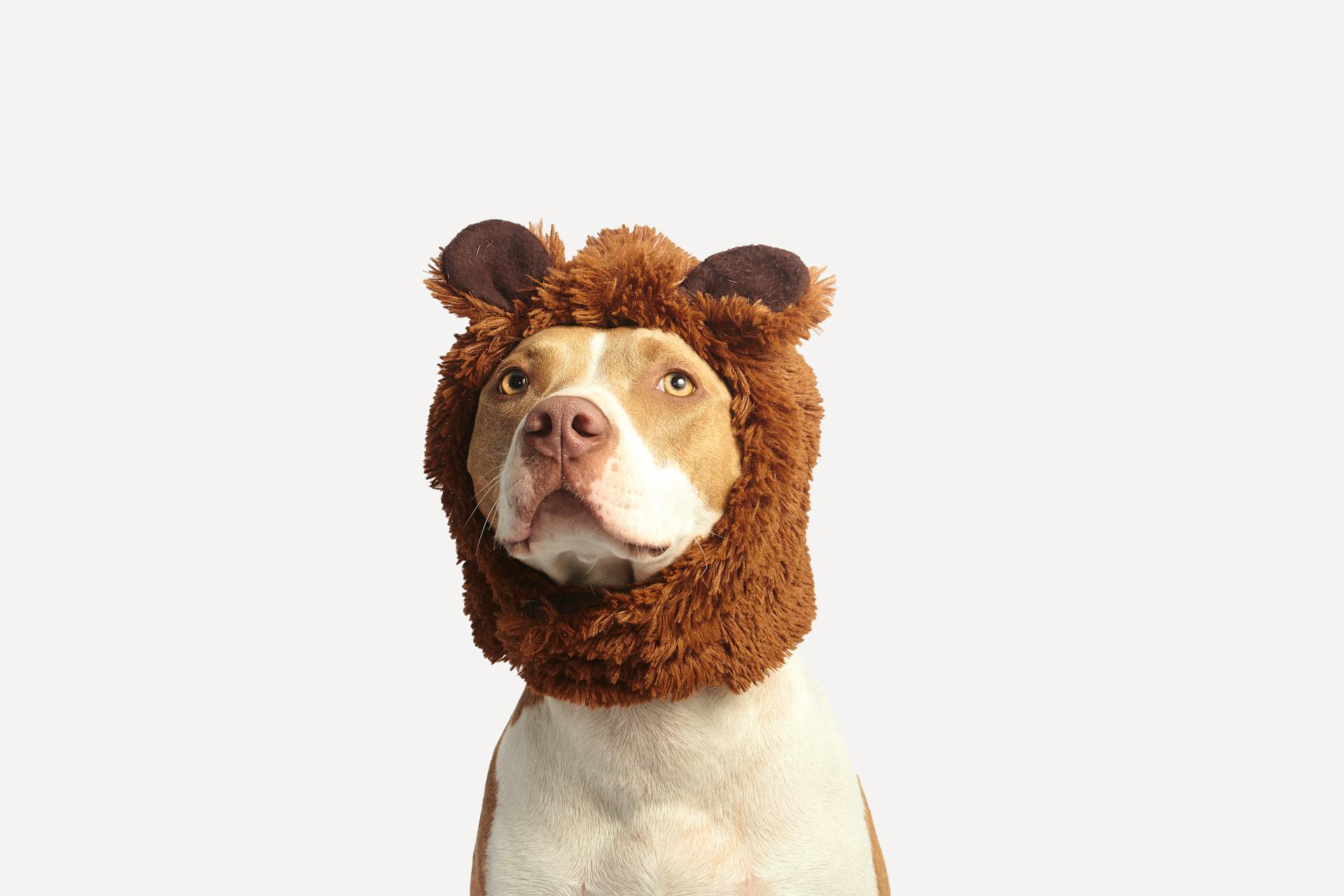
Here are some common health issues that can affect the American Hairless Terrier:
- Patellar Luxation
- Hemophilia
- Legg-Calve-Perthes Disease
- Cushing's Disease
- Teeth Issues
It's essential to work with a reputable breeder who performs health checks on the parents before breeding to minimize the risk of inherited health issues. Regular veterinary check-ups and a healthy lifestyle can also help prevent or catch these conditions early on.
Not a Good Swimmer
The American Hairless Terrier may be a quick and agile dog, but they're not exactly built for swimming. They can get into a body of water within seconds if you're not paying attention.
Their small size and energetic nature make them prone to accidents around water, so it's essential to exercise caution and keep a watchful eye on them if you have a pool or live near a lake.
In fact, it's recommended to put a fence around a pool and keep the dog on a leash when walking near lakes or other bodies of water. This will help prevent any potential hazards.
For another approach, see: American Water Spaniel Dogs
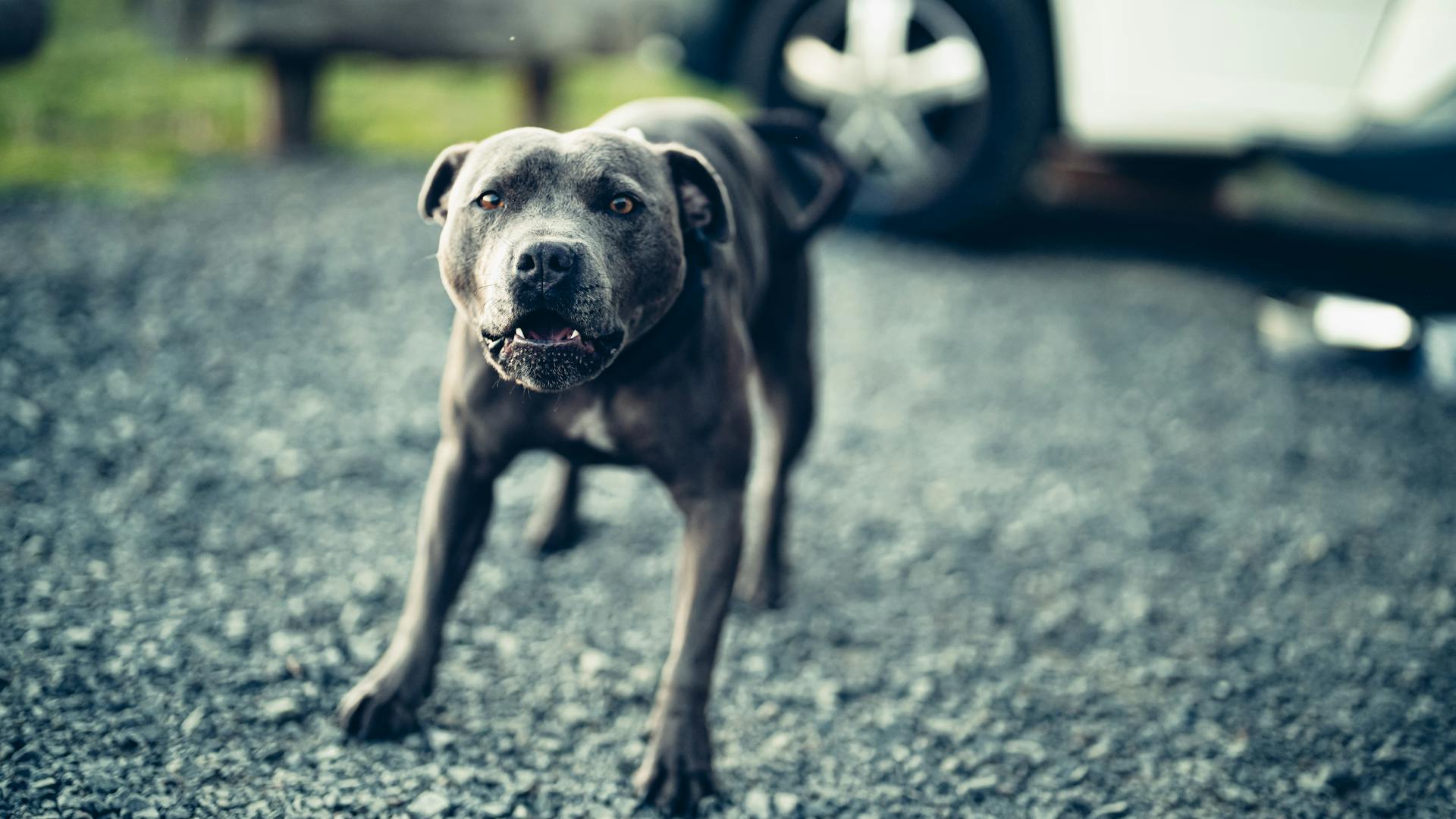
Their playful nature can be both a blessing and a curse, especially around water. They love to bounce around and have fun, but this can also lead to accidents if you're not careful.
So, if you're an American Hairless Terrier owner, make sure to keep a close eye on your furry friend around water, and consider taking extra precautions to ensure their safety.
On a similar theme: American Water Spaniel Colors
Diet and Nutrition
Feeding your American Hairless Terrier (AHT) the right food is crucial for its overall health.
A high-quality diet is essential for your AHT, and you should aim to feed it properly portion-controlled meals.
Obesity is a major problem in North America, and it can lead to serious health issues, so monitor your AHT's body condition carefully.
The amount of food your AHT needs will depend on its size and level of activity, so be sure to adjust its diet accordingly.
Avoid feeding unhealthy treats and table scraps to your AHT to keep it healthy.
Frequently Asked Questions
Are American hairless terriers good pets?
American Hairless Terriers make loyal and loving pets for families who want a protective and affectionate companion. With their playful and intelligent nature, they're a great fit for active households.
How much does an American Hairless Terrier cost?
American Hairless Terriers can range from $800 to $1,800, making them a significant investment for pet owners. If you're considering bringing one home, learn more about this unique breed and its needs.
Is the American Hairless Terrier hypoallergenic?
Yes, the American Hairless Terrier is considered a hypoallergenic breed due to its hairless variety. This makes it a great option for those with allergies.
Can American hairless terriers be left alone?
American Hairless Terriers can be left alone for short periods, but they require regular attention and exercise to prevent separation anxiety and destructive behavior. Crate training can help alleviate these issues and ensure your dog's safety while you're away.
Do American hairless terriers bark a lot?
American Hairless Terriers are prone to frequent, high-pitched barking. They may not be considered yappy, but their barking can be persistent and rapid.
Sources
- https://www.thesprucepets.com/american-hairless-terrier-dog-breed-profile-4780472
- https://www.dailypaws.com/dogs-puppies/dog-breeds/american-hairless-terrier
- https://www.petfinder.com/dogs-and-puppies/breeds/american-hairless-terrier-dogs-puppies/
- https://wagwalking.com/breed/american-hairless-terrier
- https://www.petinsurancequotes.com/blog/things-need-know-american-hairless-terrier/
Featured Images: pexels.com
